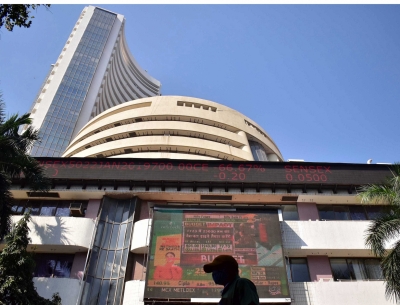Iran’s overnight ballistic missile strike on Israel has sent shockwaves through global markets on expected lines with a significant shift in investor behavior rushing for safer assets. Besides a decline in U.S. Treasury bond yields and a surge in gold prices, the safe-haven dollar has strengthened against the euro, trading close to its strongest in three weeks.
The missile strike, which occurred on October 2, 2024, has had a profound impact on oil prices. Brent crude has gained more than 1% to reach $74.40 per barrel, reflecting the market’s concern over potential supply disruptions in the Middle East due to the heightened tensions.
The geopolitical unrest has also affected stock markets in Asia, with Japan’s Nikkei slumping 1.5%, South Korea’s KOSPI dropping 1.3%, and Australia’s benchmark losing 0.3%. Due to a holiday on Mahatma Gandhi’s birth anniversary, India’s markets were closed on Wednesday.
The U.S. S&P 500 futures also weakened, indicating a risk-averse sentiment among investors. This shift in investor sentiment is a clear indication of the market’s reaction to the escalating geopolitical tensions and the potential impact on the global economy.
Impact on Central Banks’ Policies
The U.S. Federal Reserve’s potential interest rate cut in November is being influenced by a resilient U.S. job market, suggesting a smaller cut might be appropriate. Additionally, eurozone inflation trends are pointing towards an expected European Central Bank (ECB) easing, which could affect the global economic outlook and the Fed’s decision.
Fed Chair Jerome Powell’s comments have pushed back against the likelihood of another large rate cut, as the U.S. economy is seen as being on solid footing. Market expectations for a smaller cut are also shaped by data on job openings and the potential for continued economic growth. These factors are playing a crucial role in shaping investor sentiment and market expectations.
The Federal Reserve’s indication of a smaller interest rate cut in November, due to a resilient U.S. job market, has influenced market sentiment, with investors adjusting their expectations for a more measured approach to monetary easing. This has contributed to a slight unwind of long Treasury bets and a focus on economic data like job openings for further cues.
History Repeats
The geopolitical tensions and their impact on global markets are reminiscent of similar historical events. For instance, the 1990-1991 Gulf War led to a spike in oil prices and a sell-off in global stock markets due to fears of a wider conflict and potential disruptions to oil supplies. Similarly, the 2008 Russia-Georgia war led to a brief spike in oil prices and a dip in global stock markets. These historical events underscore the significant impact geopolitical conflicts can have on global markets and the economy.
The ECB’s expected quarter-point rate cut in response to inflation falling below its target has also shaped expectations, with investors anticipating a supportive monetary policy to boost the eurozone economy. These central bank policies are crucial in managing market expectations, affecting bond yields, the dollar’s strength, and overall investor confidence in the global economic outlook.

